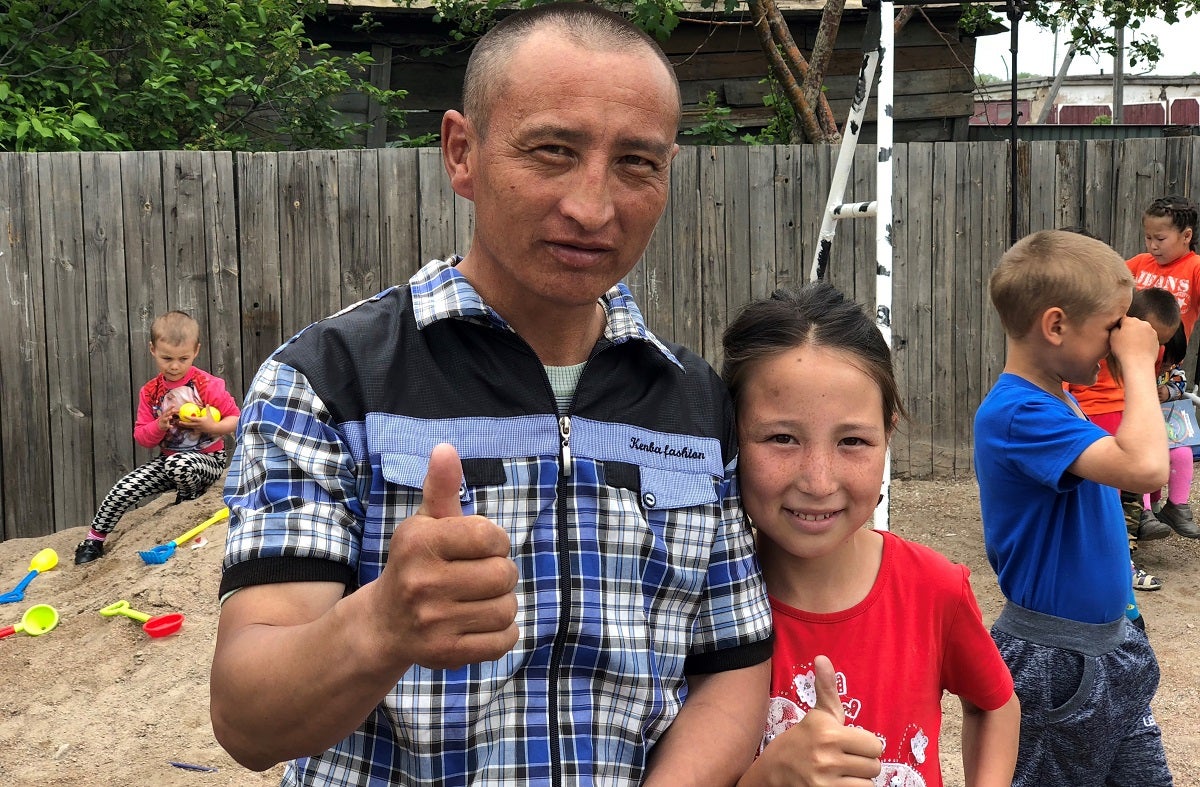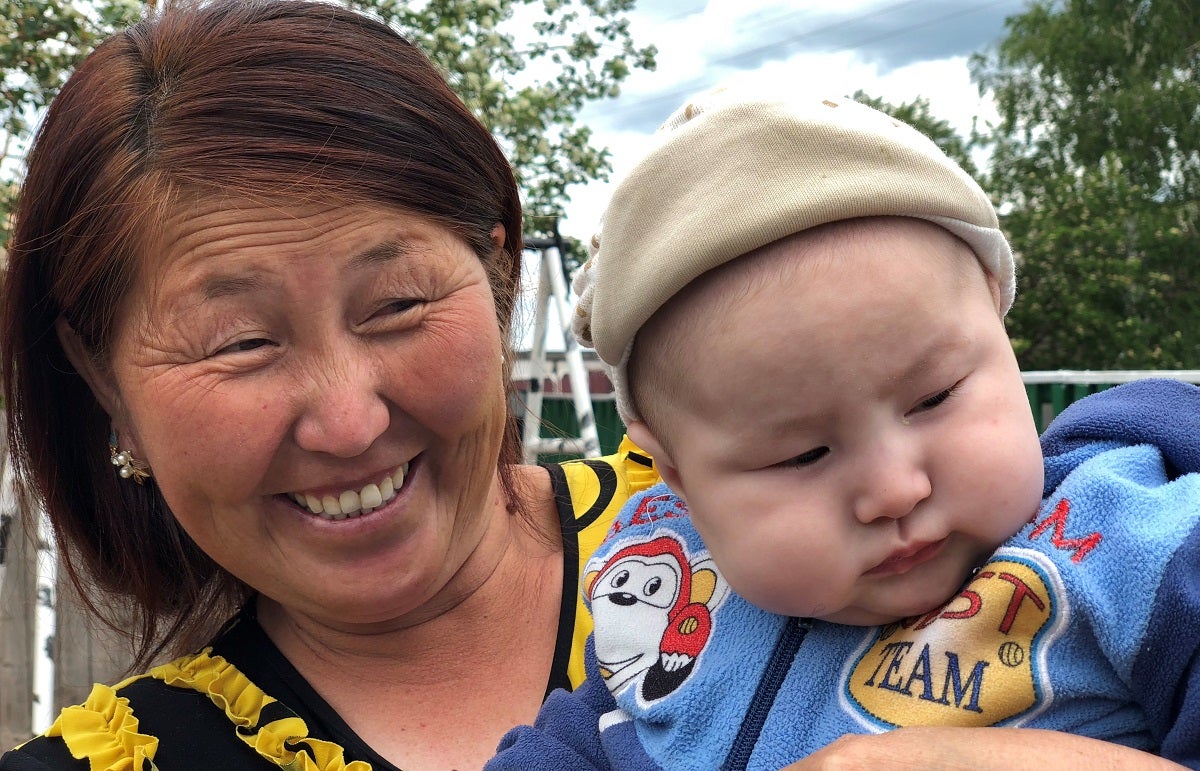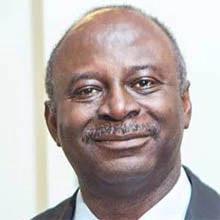During a recent trip to a popular tourist enclave in Kazakhstan called Borovoye, I decided to make a stopover in the village of Makinsk, about 150 km north of the capital city Astana. I was keen to learn more about the communities and people living outside the capital and other major cities. Living in a modern, dynamic city like Astana, one does not get a true sense of people’s lives in rural Kazakhstan.
In Makinsk, I met with Kabenke Dosenkhan and Onerkhan Nurbek, the proud parents of eight children; their youngest was born in February this year. They told me about the village and their daily lives, and they introduced their wonderful children. I also heard about how they had struggled in the recent past to make ends meet, surviving on the equivalent of US$50 per month in child benefits, supplemented occasionally with pay for manual labor by the head of the household, Onerkhan.

When meeting such families, I am reminded of the socio-economic challenges facing fast-developing countries like Kazakhstan, where some citizens risk being left behind, unable to escape the vicious circle of poverty.
At the World Bank, we are determined to help people such as Kabenke and Onerkhan and their families keep up with the pace of change and ultimately benefit from economic progress. As part of this effort, we are supporting the Government of Kazakhstan, through the Joint Economic Research Program, with an innovative pilot project called the Orleu Program, which helps people through a combination of cash transfers and a “work first” approach.

Participants in the Orleu Program can take advantage of resources and work opportunities made available by the “Program for the Development of Productive Employment and Mass Entrepreneurship for 2017-2021”. They can also access special social care services, and one-time lump-sum payments – for the purchase of farming equipment, for example.
By January 2018, the total number of Orleu Program participants had reached 32,200 families – or around 179,600 people.
Both Kabenke and Onerkhan applied to the Orleu Program last year. In May 2017, the family was assigned a monthly conditional cash payment in the amount of 19,164 tenge (US$56), while Onerkhan was employed as a furnace operator with a salary equivalent to US$100 per month.
In March this year – following the birth of their latest child – the family’s monthly payment reached 51,681 tenge. And Kabenke found a job through the local employment center as a school janitor, with a salary of 45,000 tenge (US$140).

In Makinsk, I met with Kabenke Dosenkhan and Onerkhan Nurbek, the proud parents of eight children; their youngest was born in February this year. They told me about the village and their daily lives, and they introduced their wonderful children. I also heard about how they had struggled in the recent past to make ends meet, surviving on the equivalent of US$50 per month in child benefits, supplemented occasionally with pay for manual labor by the head of the household, Onerkhan.

When meeting such families, I am reminded of the socio-economic challenges facing fast-developing countries like Kazakhstan, where some citizens risk being left behind, unable to escape the vicious circle of poverty.
At the World Bank, we are determined to help people such as Kabenke and Onerkhan and their families keep up with the pace of change and ultimately benefit from economic progress. As part of this effort, we are supporting the Government of Kazakhstan, through the Joint Economic Research Program, with an innovative pilot project called the Orleu Program, which helps people through a combination of cash transfers and a “work first” approach.

Participants in the Orleu Program can take advantage of resources and work opportunities made available by the “Program for the Development of Productive Employment and Mass Entrepreneurship for 2017-2021”. They can also access special social care services, and one-time lump-sum payments – for the purchase of farming equipment, for example.
By January 2018, the total number of Orleu Program participants had reached 32,200 families – or around 179,600 people.
Both Kabenke and Onerkhan applied to the Orleu Program last year. In May 2017, the family was assigned a monthly conditional cash payment in the amount of 19,164 tenge (US$56), while Onerkhan was employed as a furnace operator with a salary equivalent to US$100 per month.
In March this year – following the birth of their latest child – the family’s monthly payment reached 51,681 tenge. And Kabenke found a job through the local employment center as a school janitor, with a salary of 45,000 tenge (US$140).

The family told me how happy they are now that Kabenke and Onerkhan have jobs, which bring added security to their lives.
In Kazakhstan today, 184,000 citizens (of working age and able to work) are receiving conditional cash transfers, while 43,000 citizens (including poor people, disabled persons, older pensioners, and single mothers caring for pre-school children) receive un-conditional cash transfers.
The Orleu Program is a small but ambitious initiative by the Kazakh Government, which holds important lessons for other fast developing economies where the pace of development can leave behind relatively uneducated and unskilled families , both in rural and urban areas.
The experience of targeted conditional cash transfers to poor families in Kazakhstan is instructive for other countries. But ultimately, the goal is to provide a pathway for people – such as Kabenke and Onerkhan – to acquire the skills relevant to a modern economy and to secure productive long-term employment.

Join the Conversation